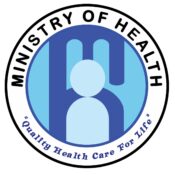
Caribbean Tourism and Health Sectors Continue Successful Collaboration: New Crisis Communications Tools Launched
(Caribbean Tourism Organization)- The Caribbean region will benefit from a pioneering initiative aimed at expanding the tourism industry’s use of innovative tools and resources to enhance the health and safety of visitors, residents, and all tourism stakeholders.
As the region has experienced, health pandemics like COVID-19 and natural disasters such as hurricanes can negatively impact public health and safety in the tourism sector, threatening socioeconomic development and the capacity to sustain tourism and business operations.
To help mitigate this reality, the Caribbean Public Health Agency (CARPHA), the Caribbean Tourism Organization (CTO), and the Caribbean Hotel and Tourism Association (CHTA) collaborated on the “Regional Tourism Health Capacity Enhancement and Digitization Project: Advancing Caribbean Travelers’ Health” with funding and technical assistance from the Inter-American Development Bank (IDB).
A key result of the project was the development of comprehensive communications and social media plans, along with a Health and Tourism Crisis Communications Toolkit to support Healthier Safer Tourism in the Caribbean. The toolkit is designed for tourism partners in the public and private sectors.
On June 11, project participants teamed with experts from the Caribbean Institute for Meteorology & Hydrology during a webinar to share the latest insights on the 2024 Atlantic Hurricane Season forecast, ahead of Hurricane Beryl’s recent transit of the region. Participants also received information on training, sensitization, and awareness of the crisis communications toolkit, along with health safety tips and resources from CARPHA to protect employees and guests during extreme weather conditions.
The Crisis Communications Toolkit comprises five components that provide access to information on preparedness and response to public health threats.
- Regional Tools of the Tourism and Health Program (THP), which offers information on the nine CARPHA-developed regional THP tools
- Promotional Tools and Resources to engage travelers, and health and tourism partners
- Media Relations materials, including press release, media advisory and media pitch examples
- Social Media Guide to support consumer and personal handles
- Resources such as correspondence templates that can be used to establish and sustain the Tourism and Health Program in each country
The online toolkit’s components were developed based on feedback from tourism authorities in both the private and public sectors of pilot countries Barbados, Belize, and The Bahamas, as well as input from CARPHA, CHTA and CTO stakeholders. These resources will be accessible online to CTO and CHTA members.
Dona Regis-Prosper, Secretary-General and CEO of CTO, remarked, “The availability of these tools is timely during this year’s hurricane season. Collaboration and communication with our guests and internally with our stakeholders are essential to mitigate the effects of the global climate crisis.”
Dr. Lisa Indar, Ad Interim Executive Director of CARPHA and head of the THP, stated, “The tools would not only facilitate healthier safer tourism, but healthier safer populations as well. In the aftermath of hurricanes, as some member states are currently experiencing, increased cases of communicable diseases such as gastroenteritis, leptospirosis and dengue fever are highly likely. These additional tools would further enhance our efforts to mitigate against these health threats and protect both residents and visitors,” she added.
“As we’ve already witnessed, the earliest arrival of a Category 5 hurricane on record, it is essential that we support one another and uphold strong planning and collaboration at the company and destination levels,” emphasized Vanessa Ledesma, Acting CEO and Director General of CHTA.
“We reaffirm our dedication to strengthening our preparedness and response efforts through the implementation of these new tools: the crisis communication tool, online training modules, and the regional visitor information management system,” she concluded.
Additional components of the project include “The Technology Enhancement and Digitalization of Regional Visitor Information Management Systems” and “Capacity Development, Training, and Promotion”, which includes the development of 16 online courses which will roll out shortly.
Recent Posts
Celebrate Valentine’s in Saint Lucia
2026 New Year’s Message by SLHTA President Erwin Louisy
Tags




